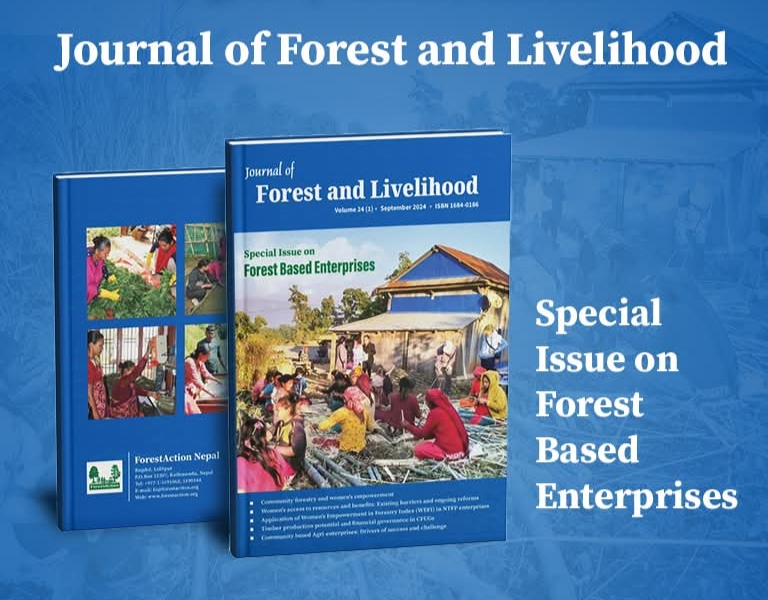Kathmandu, Nepal – Community forestry in Nepal is emerging as a beacon of hope, not just for sustainable forest management but also as a powerful tool for economic growth and social empowerment. The latest publication of the Journal of Forest and Livelihood (Vol. 24, Issue 1), titled Forest-Based Enterprises, sheds light on this transformative role, with a particular focus on the intersection of community forestry and women’s economic empowerment. The issue features comprehensive research, field-based studies, and data from the International Development Research Centre (IDRC/CRDI)-funded project, Economic Empowerment of Women through Forest Solutions. It explores how small and medium-scale forest-based enterprises (SMEs), especially those focused on non-timber forest products (NTFPs), create economic opportunities for women in local communities.
The issue features comprehensive research, field-based studies, and data from the International Development Research Centre (IDRC/CRDI)-funded project, Economic Empowerment of Women through Forest Solutions. It explores how small and medium-scale forest-based enterprises (SMEs), especially those focused on non-timber forest products (NTFPs), create economic opportunities for women in local communities.
Despite these strides, the journal highlights persistent barriers that women face in accessing productive resources and decision-making roles. Limited entrepreneurial linkages, gender biases, and structural challenges continue to restrict the full potential of women’s participation in forest-based enterprises.
A Path to Inclusive Development
The findings underscore the importance of evidence-based knowledge to bridge these gaps. By linking women to productive resource decisions and fostering entrepreneurial opportunities, the study suggests that community forestry can generate scalable business models that enhance climate resilience and promote social equity.
“Community forestry holds immense potential for transforming local economies while fostering gender equality. By addressing the existing barriers, we can create inclusive opportunities for sustainable development,” says one of the researchers featured in the publication.
Call for Action
The journal calls for policymakers, development organizations, and researchers to focus on enhancing community-based enterprises. Through targeted interventions, such as capacity-building for women, improved access to markets, and gender-sensitive policies, Nepal’s community forestry model could serve as a global exemplar for sustainable development and inclusive growth.